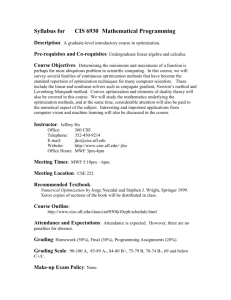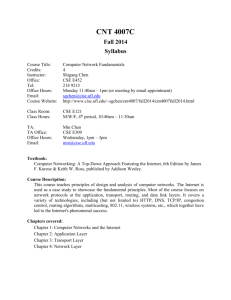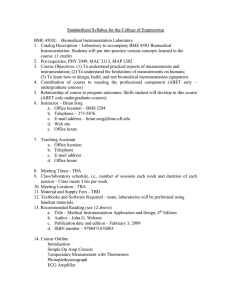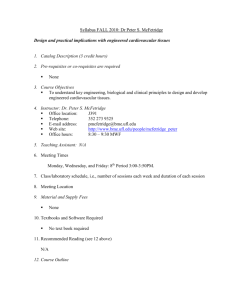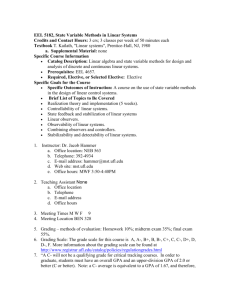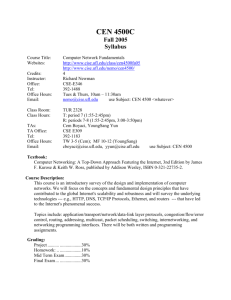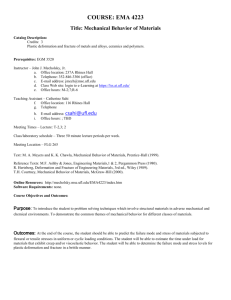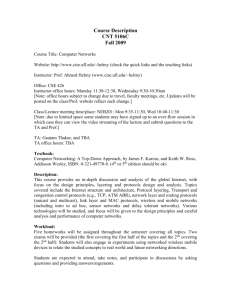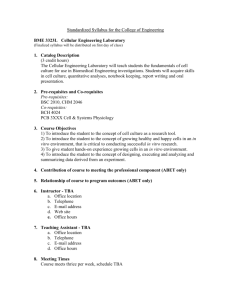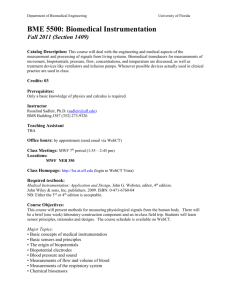Syllabus - Department of Computer & Information Science
advertisement
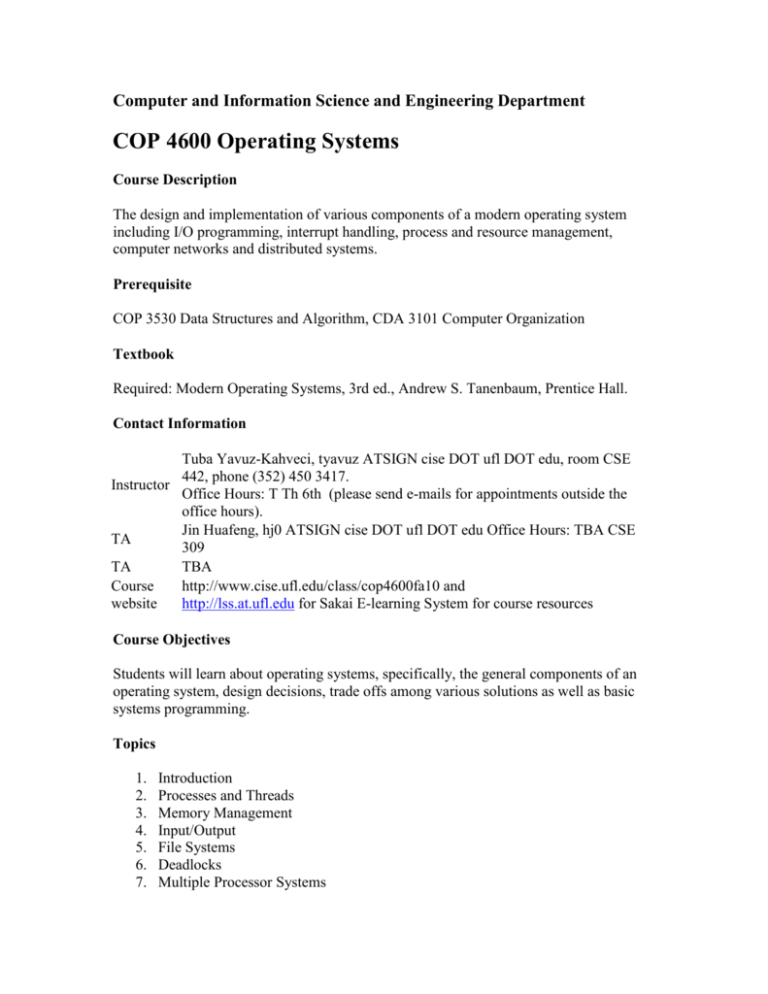
Computer and Information Science and Engineering Department COP 4600 Operating Systems Course Description The design and implementation of various components of a modern operating system including I/O programming, interrupt handling, process and resource management, computer networks and distributed systems. Prerequisite COP 3530 Data Structures and Algorithm, CDA 3101 Computer Organization Textbook Required: Modern Operating Systems, 3rd ed., Andrew S. Tanenbaum, Prentice Hall. Contact Information Tuba Yavuz-Kahveci, tyavuz ATSIGN cise DOT ufl DOT edu, room CSE 442, phone (352) 450 3417. Instructor Office Hours: T Th 6th (please send e-mails for appointments outside the office hours). Jin Huafeng, hj0 ATSIGN cise DOT ufl DOT edu Office Hours: TBA CSE TA 309 TA TBA Course http://www.cise.ufl.edu/class/cop4600fa10 and website http://lss.at.ufl.edu for Sakai E-learning System for course resources Course Objectives Students will learn about operating systems, specifically, the general components of an operating system, design decisions, trade offs among various solutions as well as basic systems programming. Topics 1. 2. 3. 4. 5. 6. 7. Introduction Processes and Threads Memory Management Input/Output File Systems Deadlocks Multiple Processor Systems Class Schedule (M W F 5th period room CSE 121) Discussion Session Schedule (Section 0556 M 3rd period LIT 0113, Section 1089 M 4th period FLG 0230) Course Work Load Distribution 5% Quizzes 15% Programming Assignments 15% Homeworks 30% Midterm Exam (10/11/10, 7:30 pm – 9:30 pm, place TBA) 35% Final Exam (12/15/10, 10 am – 12 noon, CSE 121) Grading Scale Grades will be curved. Average score will be assigned a C+ or a higher letter grade. Important Note: “A C- will not be a qualifying grade for critical tracking courses. In order to graduate, students must have an overall GPA and an upper-division GPA of 2.0 or better (C or better). Note: a C- average is equivalent to a GPA of 1.67, and therefore, it does not satisfy this graduation requirement. For more information on grades and grading policies, please visit: http://www.registrar.ufl.edu/catalog/policies/regulationgrades.html” Honesty Policy All students admitted to the University of Florida have signed a statement of academic honesty committing themselves to be honest in all academic work and understanding that failure to comply with this commitment will result in disciplinary action. This statement is a reminder to uphold your obligation as a UF student and to be honest in all work submitted and exams taken in this course and all others. Accommodation for Students with Disabilities Students Requesting classroom accommodation must first register with the Dean of Students Office. That office will provide the student with documentation that he/she must provide to the course instructor when requesting accommodation. UF Counseling Services Resources are available on-campus for students having personal problems or lacking clear career and academic goals. The resources include: - University Counseling Center, 301 Peabody Hall, 392-1575, Personal and Career Counseling. - SHCC mental Health, Student Health Care Center, 392-1171, Personal and Counseling. - Center for Sexual Assault/Abuse Recovery and Education (CARE), Student Health Care Center, 392-1161, sexual assault counseling. Career Resource Center, Reitz Union, 392-1601, career development assistance and counseling. Software Use All faculty, staff and student of the University are required and expected to obey the laws and legal agreements governing software use. Failure to do so can lead to monetary damages and/or criminal penalties for the individual violator. Because such violations are also against University policies and rules, disciplinary action will be taken as appropriate. We, the members of the University of Florida community, pledge to uphold ourselves and our peers to the highest standards of honesty and integrity.
